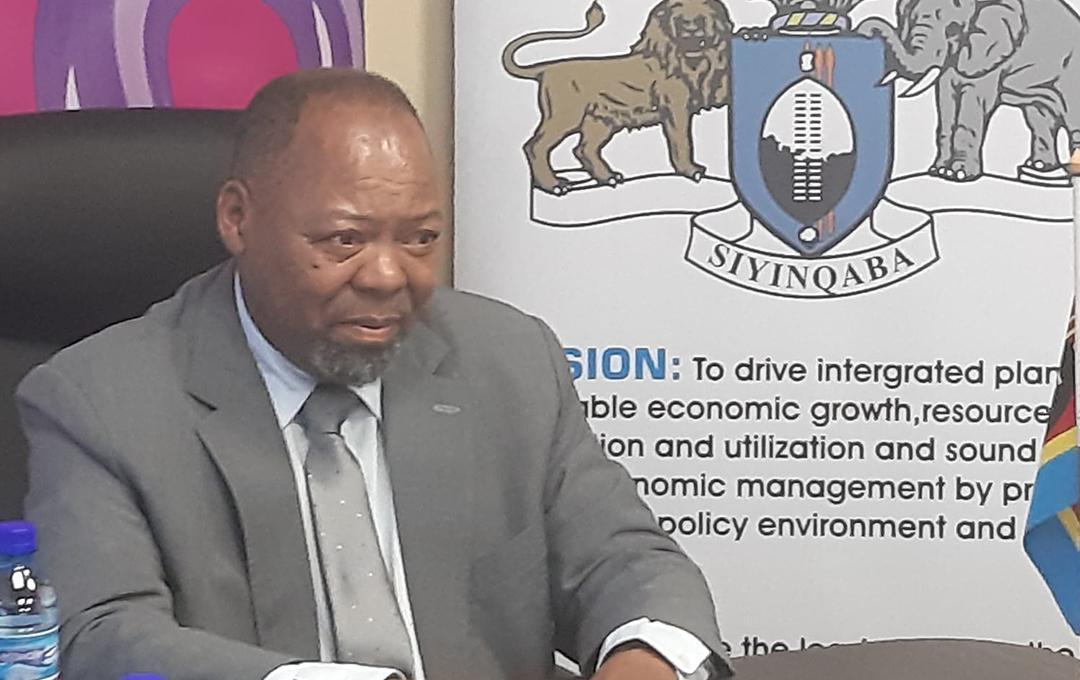Africa-Press – Eswatini. Dr Thambo Eliezer Gina says global economic developments, as depicted by the World Bank’s Global Economic Prospects as of January 2024, suggest that global economic activity was subdued in 2023 increasing by 2.6 percent, relative to a growth of 3.0 percent observed in 2022.
Dr Gina is the Minister of Economic Planning and Development and also serves as Lubulini Member of Parliament.
In a statement released by the ministry in collaboration with the Central Bank of Eswatini, Gina said global inflation moderated on the back of highly synchronized monetary policy tightening effected in 2022, as well as slowing food and energy prices.
“Heading into 2024, global economic output is projected to decelerate further owing to continued fragmentation in light of intensifying geopolitical tensions, financial stress associated with tight monetary policy conditions from the past, weakening growth in the Chinese economy weighing negatively on global demand, as well as climate-related disasters,” said the minister.
On a positive note, Gina has disclosed that global inflation is expected to maintain a downward trend as international crude oil prices are projected to remain contained despite escalating conflicts in the Middle East.
“The United States (US) Energy Information and Administration (EIA), January 2024) forecasts annual international crude oil prices to average US $82/barrel in 2024, and potentially decline to US$79/barrel in 2025. This is on account of an increase in oil production by the US and other non-Organization of the Petroleum Exporting Countries (non-OPEC) coupled with a projected slowdown in global demand, which will counteract the negative impact of supply disruptions from rising geopolitical tensions and production cuts implemented by the OPEC countries and their allies (OPEC+),” he said.
The minister said developments in the Sub-Saharan Africa (SSA) region indicate that growth is estimated to have slowed to 2.9 percent in 2023 compared to 3.7 percent recorded in 2022 (World Bank’s Global Economic Prospects of January 2024).
“Contributing to the downturn in growth were heightened inflationary and exchange rate pressures, as well as debt vulnerabilities in most African countries. In 2024, the SSA growth is projected to rebound to 3.8 percent on account of improved performances in non-resource-intensive countries, as well as falling inflation in the region. Closer to home, the South African (SA) economy is estimated to have grown by 0.8 percent in 2023(South African Reserve Bank (SARB), November 2023), which is relatively higher than the 0.4 percent projected in July 2023. However, the energy crisis continues to be a major risk to the South African economy, posing a threat to key productive sectors such as agriculture, manufacturing, and mining. The SARB projects that the SA economy will grow by 1.2 percent and 1.3 percent, respectively, in 2024 and 2025,” explained the minister.
Gina stated that weather developments as reported by the World Meteorological Organization in July 2023, highlighted a possible return of the El Niño conditions (i.e., dry weather conditions, with below-normal rains) after 3 years of La Niña (i.e., wet weather conditions with above-normal rains).
He said the Latest indications (as of December 2023) reflect that the Southern Africa part is indeed in an El Niño state although at varying stages across the region.
“However, in the Eswatini context rainfall has been at normal to above normal levels (200mm to 500mm) in the first half of the summer season (October to December) according to Eswatini Meteorological Services seasonal forecast, September 2023 to January 2024. In this regard, the anticipated El Niño impact on the domestic economy has been muted in the short term, although the heightened uncertainty and rapid change in climate events, culminating in erratic weather patterns, will continue to be a major threat to economic activity,” he said.
For More News And Analysis About Eswatini Follow Africa-Press







